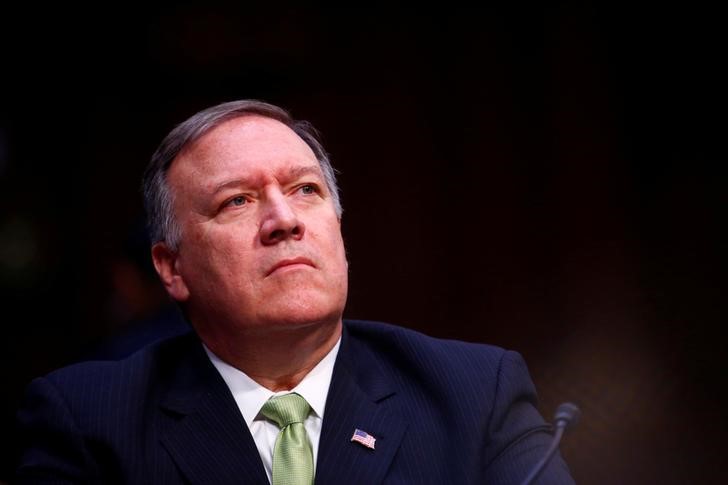By Daina Beth Solomon
MEXICO CITY, July 22 (Reuters) - Mexico will not agree to further discussion of safe third country status for asylum seekers, the foreign minister said, adding it was not clear what the Trump administration's stance was on the issue despite a deadline reached on Monday.
Foreign Minister Marcelo Ebrard said that in weekend talks, U.S. Secretary of State Mike Pompeo did not address an earlier deal that the two countries look at making asylum seekers apply for refuge in Mexico if migration flows were not significantly lower by July 22.
However, Ebrard said he told Pompeo in Mexico City on Sunday that Mexico's view was that the proposal was unnecessary, after it helped reduce apprehensions at the U.S. southern border by a about a third last month.
"I can't anticipate what their stance is but the Mexican position is very clear. We are not going to change our position. We don't agree, and we have not accepted a negotiation about it," Ebrard said at a news conference.
Mexico has long resisted U.S. pressure to formally accept the safe third country status. Even so, it agreed with the United States to begin talks over changing rules to make Mexico into a safe third country if, by July 22, the United States deemed that Mexico had not done enough to thwart migrants.
That June 7 deal was reached to avert U.S. President Donald Trump's threat of escalating tariffs on all Mexican products sold to the United States.
U.S. President Donald Trump has made slashing illegal migration numbers a hallmark of his presidency and 2020 re-election bid, but despite last month's decline in apprehensions flows are still near record highs.
A safe third country agreement would in theory push asylum seekers, who currently make up a large part of those apprehended at the border, seek refuge in Mexico instead.
Following the meeting on Sunday, Pompeo praised Mexican efforts in reducing U.S.-bound migrant flows but said there was still "more work to do." He also said that he would consult with Trump about further action on immigration.
"As for the next set of actions. I'll talk with the president and the teams back in Washington and we'll decide exactly which tools and exactly how to proceed," Pompeo said.
Trump has been uncharacteristically quiet on the topic ahead of Monday's deadline. apprehensions on the U.S. southern border fell in June to some 100,000 people, according to U.S. data, after Mexico enforced new measures including the deployment of some 21,000 militarized National Guard police to its borders.
